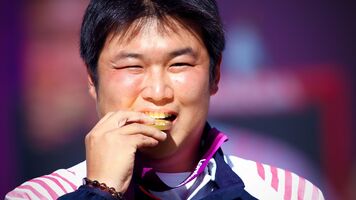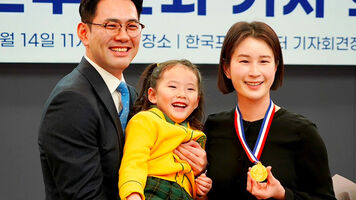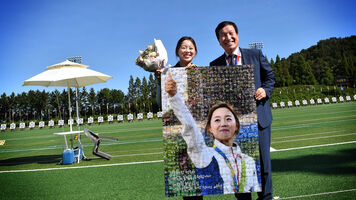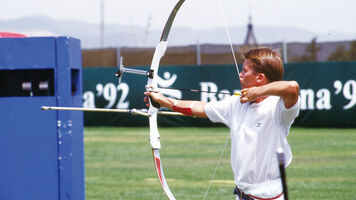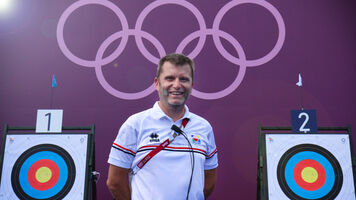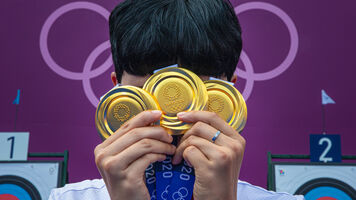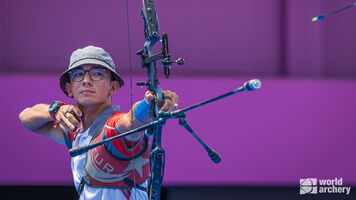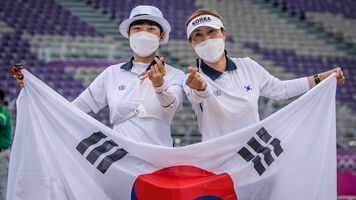How Oh Jin Hyek became the first Korean man to win the Olympics
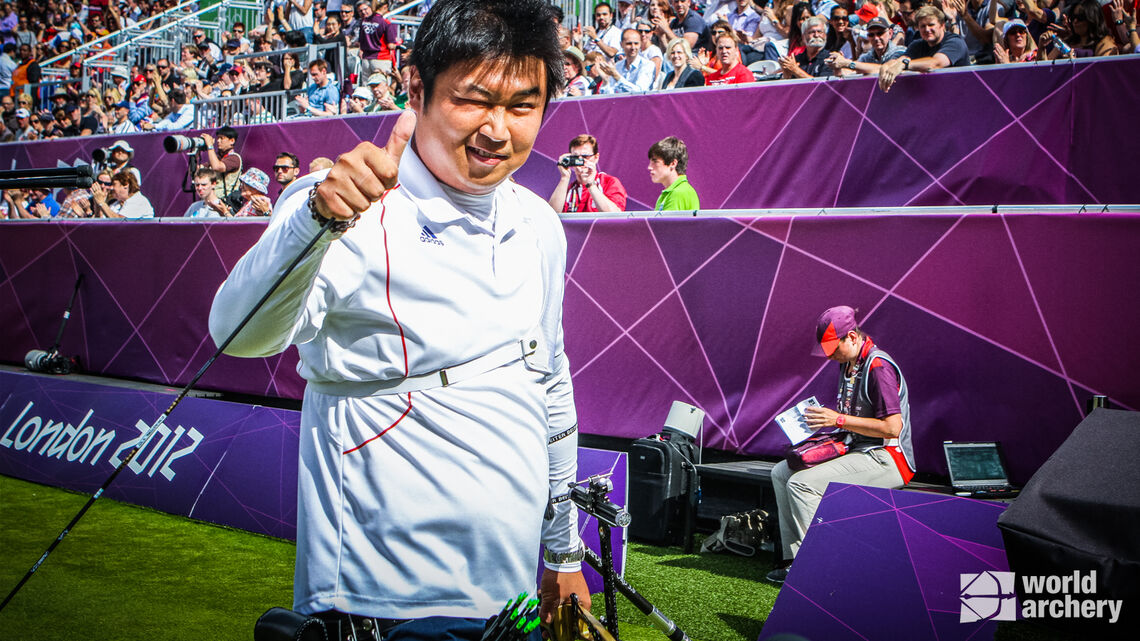
Korea made its competitive debut at the 1984 Olympics in Los Angeles, four years ahead of a home Games in Seoul.
From that first appearance until 2008, the team won at least half of the available medals (but never all of them) and until 2008 always put an archer on top of the recurve women’s podium.
The men’s individual event, however, was a different story.
Darrell Pace, Jay Barrs, Seb Flute, Justin Huish, Simon Fairweather, Marco Galiazzo and Viktor Ruban are the seven male archers who collected the Olympic title between 1984 and 2008. None of them are Korean.
Recurve men from the country that was then establishing itself as the sport’s leading nation finished runner-up at the Games in 1988, 1992 and 2008 – and Oh Kyo Moon took bronze in ’96 – but the win was elusive.
Until, of course, Oh Jin Hyek came along in 2012 and battled all the way through the brackets at the first Olympics in history to use the set system to decide matchplay. (Recurve matches at previous Games were won using cumulative score – like modern compound matches.)
He would beat Japan’s Takaharu Furukawa in a dominant final, 7-1, to become the first Korean man to ever become Olympic Champion.
Ku Bonchan, who incidentally hailed from the same professional club as Jin Hyek in Hyundai Steel, then took a much-less-heralded victory four years later in Rio before the title left for Turkey with incumbent Mete Gazoz last summer.
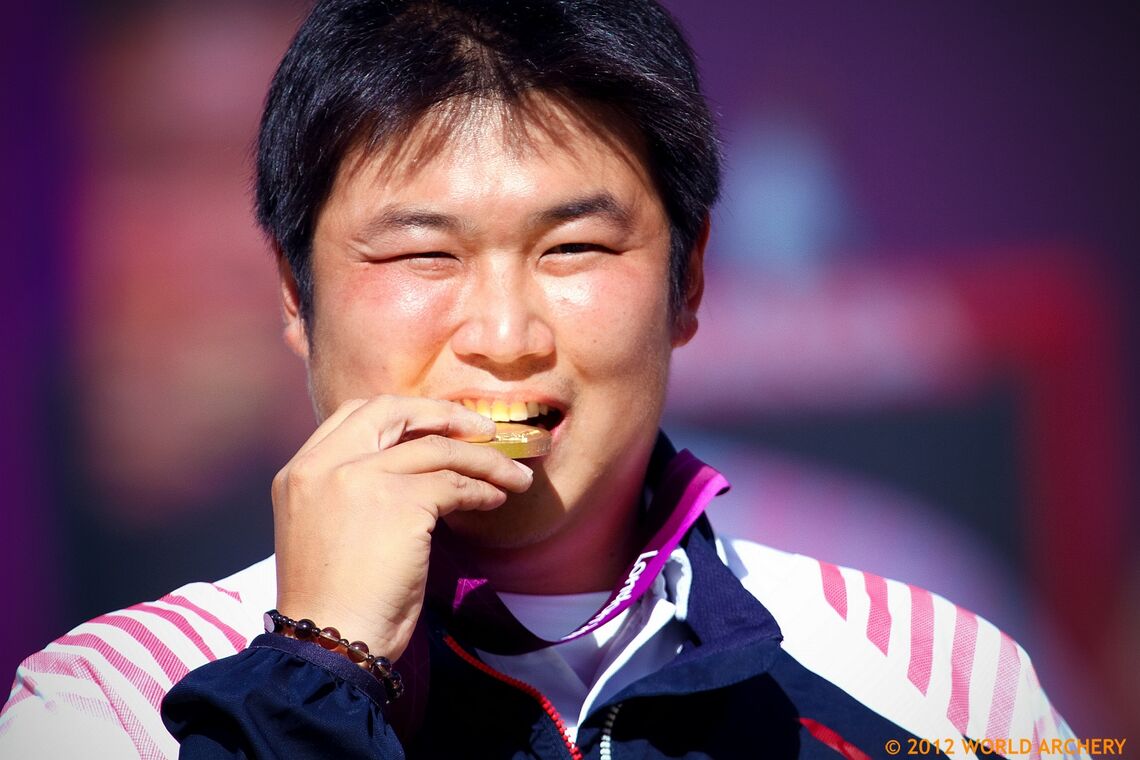
There were plenty of talented Korean men to take to the Olympic field before Jin Hyek. In 2012, archers from the country had won nine of the last 10 world championships.
(Oh has, to date, never won the worlds individually – though finished second twice.)
But it was Oh, the man nicknamed ‘Soft Drink Pig’ by the Korean media during London due to his love of fizzy drinks and sweets, who achieved what none of his more touted predecessors could not. It was undoubtedly a shock at the time – but with a decade’s hindsight, it simply looks like the pivot in a larger legacy.
“I made the national team when I was very young,” said Oh during an interview at the world championships in late 2021. He was 17 at his first worlds in 1999. “I failed to qualify the year after.”
“When I think about what went wrong, I think it was my arrogance. I ended up in a slump,” he continued. “I never wanted to go through that again.”
The goal of many recurve archers is to win the Olympics.
Oh Jin Hyek won the Olympics – but his goal was to build a legacy.
It’s not finished yet. A decade on from his gold medal at London 2012 and 23 years on from his debut at the world championships, we’re still watching him perform at an elite level on the Hyundai Archery World Cup circuit.
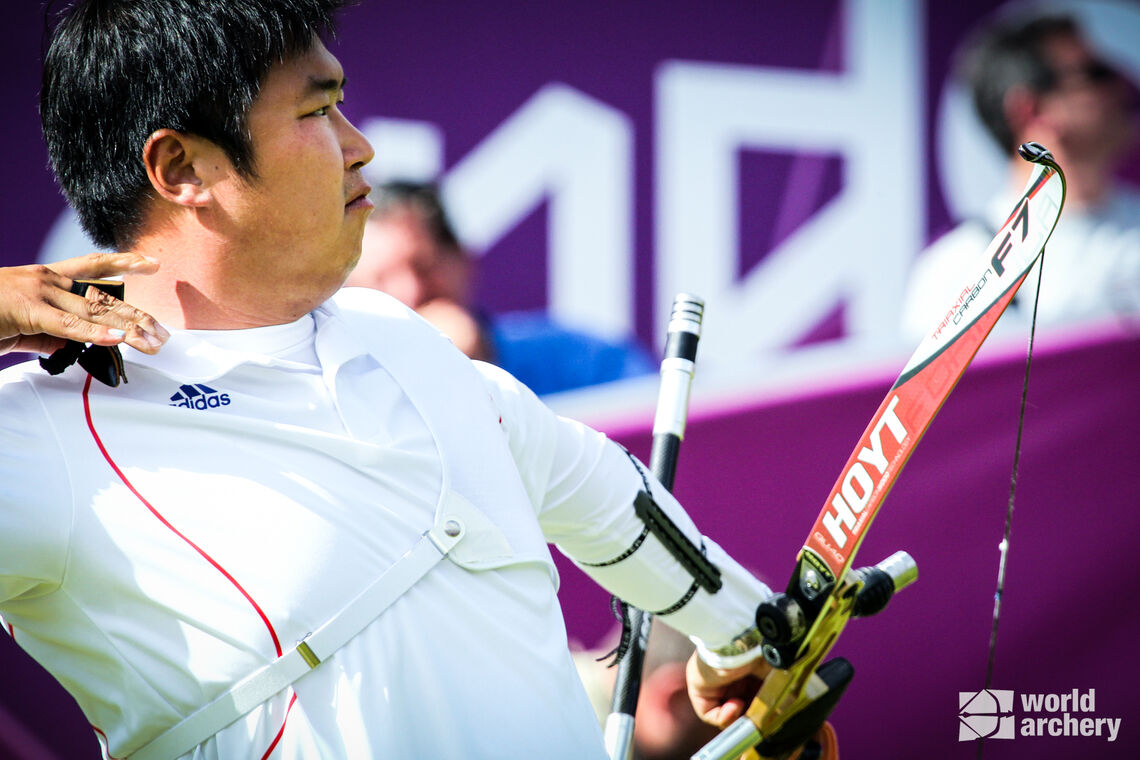
It‘s a well-known and oft-repeated trope that it’s harder to make the Korean team than win the Olympics. (It’s not true – both are really hard.)
One of the nation’s longest-serving squad members, Im Dong Hyun, quietly retired from the sport in early 2021. And while Oh never had Im’s consistency on the squad – he missed the team and the Olympics in Rio before returning for Tokyo – he has repeatedly come back.
“I told myself, there’s no way I’m not making the team two years in a row,” he said, when asked about sitting on the sidelines for the Games in 2016.
“I really pushed myself with that mentality, which ultimately led to injury.”
That injury is a niggle in the shoulder that has remained to this day. And though retirement now seems a constant subject in conversation with the 40-year-old, he has continued to find a reason to remain on the line – there’s always one more major event at which he can attempt to extend his legacy.
Despite its personal and national importance, that Olympic victory in London still does not define Oh as an athlete.
“I think I suppressed the feeling of achievement a lot. I didn’t want to get caught up in the achievement itself and let it get to my head,” he said. “Sure, it was a great achievement but there’s so much more to an athlete’s career.”
And perhaps that’s why he won it in the first place.




